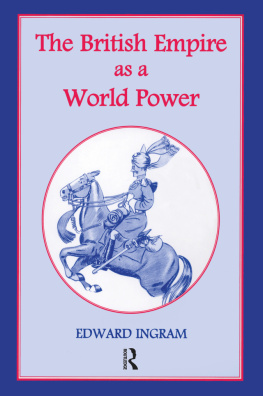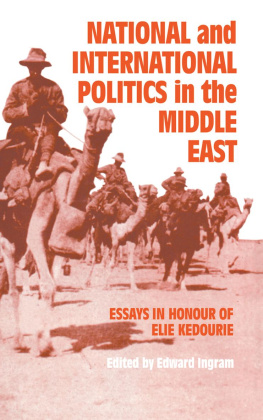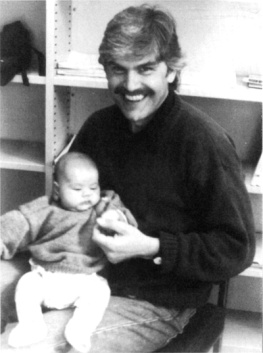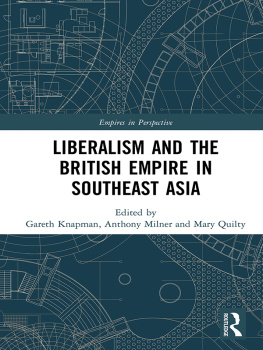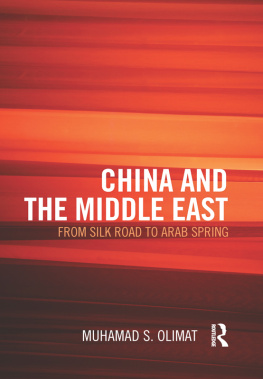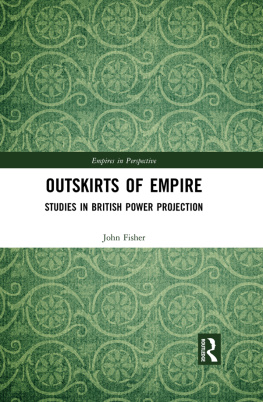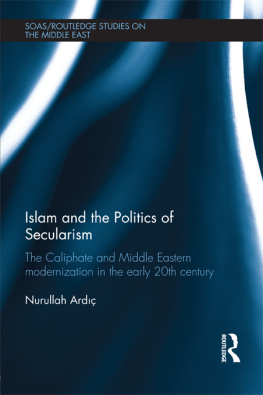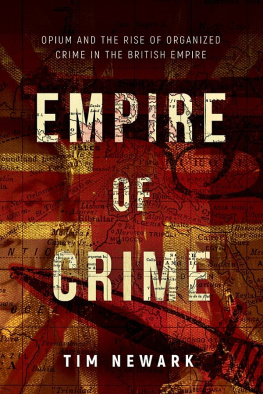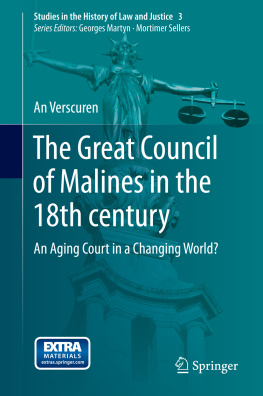THE BRITISH EMPIRE AS A WORLD POWER
By the Same Author :
EMPIRE-BUILDING AND EMPIRE-BUILDERS
COMMITMENT TO EMPIRE:
PROPHECIES OF THE GREAT GAME IN ASIA, 1797-1800
BRITAIN'S PERSIAN CONNECTION:
PRELUDE TO THE GREAT GAME IN ASIA, 1798-1828
THE BEGINNING OF THE GREAT GAME IN ASIA, 1828-1834
IN DEFENCE OF BRITISH INDIA:
GREAT BRITAIN IN THE MIDDLE EAST, 1774-1842
As Editor :
NATIONAL AND INTERNATIONAL POLITICS IN THE MIDDLE EAST:
ESSAYS IN HONOUR OF ELIE KEDOURIE
TWO VIEWS OF BRITISH INDIA: THE PRIVATE CORRESPONDENCE
OF MR DUNDAS AND LORD WELLESLEY, 1798-1801
The British Empire as a World Power
Edward Ingram
Victoria University of Wellington
First published 2001 by
FRANK CASS PUBLISHERS
This edition published 2014 by Routledge
2 Park Square, Milton Park, Abingdon, Oxon OX14 4RN
711 Third Avenue, New York, NY 10017
Routledge is an imprint of the Taylor & Francis Group, an informa business
Copyright 2001 Edward Ingram
British Library Cataloguing in Publication Data
Ingram, Edward
The British empire as a world power
1. Imperialism History 2. Great Britain Colonies
I. Title
325.3'41
ISBN 0-7146-5151-6 (cloth)
Library of Congress Cataloging-in-Publication Data
Ingram, Edward.
The British Empire as a world power / Edward Ingram.
p. cm.
Includes bibliographical references and index.
ISBN 0-7146-5151-6
1. Great Britain Colonies History. 2. World politics. 3.
Imperialism. I. title.
DA16 .I538 2001
325'.341'0956dc21
00-047445
All rights reserved. No part of this publication may be reproduced, stored in or introduced into a retrieval system or transmitted in any form or by any means, electronic, mechanical, photocopying, recording or otherwise, without the prior written permission of the publisher of this book.
Typeset by Vitaset, Paddock Wood, Kent
For
Franz-Peter Giesinger
for time remembered
Henry Jerningham: Do you just collect stray bits of evidence and hope they'll make sense?
Roderick Alleyn: More or less. You scavenge and then you arrange everything and try and see the pattern?
Henry Jerningham: Suppose there's no pattern.
Roderick Alleyn: There must be. It's a question of clearing away the rubbish.
Ngaio Marsh, Overture to Death, Chapter 18
HOW TIRED one is of travellers and of the commonplace photographs they carry around in handbags and wallets in the hope of showing them off to the unwary over lunch. Historians, like popes, should stay at home. They should stop pretending that their taste for wandering around Cairo, Lugano or Cuernavaca deepens their understanding of the past. To sit on a rock overlooking the Khyber Pass may pass for a romantic, even adventurous, way to spend an afternoon, though the steaks and martinis of the Lahore Intercontinental are reassuringly close at hand: it will tell one little about the Great Game in Asia. If the popular books written about the game are anything to go by, such picnics are more likely to mislead. The Great Game was not played in Asia, or by travellers, spies and Kim. It was a board game, to be played in comfort in an armchair or over dinner, in the viceroy's house with Curzon, the embassy at Constantinople with Stratford de Redcliffe, with Castlereagh and Metternich at Vienna, or Disraeli and Bismarck at Berlin. 'Quel beau paysage', mutters Hercule Poirot without leaving the car as he hurries home to work the little grey cells over Miss Lemon's tisane.
The whole point about the past is that one cannot visit it, however hard archaeologists may try. One stays at home, reading books, or strains one's eyes in the library over old manuscripts written in illegible handwriting, and conjures it up. But not in the way one chooses. Postmodernists, who foolishly suppose that a little theory will deliver keys that open windows on faery-lands forlorn, are as self-deceiving as they are self-regarding. The poet Philip Larkin, when asked why all the poems he wrote were so short, replied that one should ask the poems. He meant by this that poets do not choose the poems they write: poems choose the poets who are to give voice to them. Waiting for Cleopatra is fruitless when one has been chosen by Christabel or Evangeline, or when Maud is expecting you to meet her at the garden gate. What is true of poets is true of historians. We offer dead men and women the chance to live other lives, but cannot tell who will take up our offer or what sort of lives they will choose to lead. Writing history, like writing a novel, resembles prayer: to be any good at it, one must first empty the mind and copy Muriel Spark, who puts a blank sheet of paper in a typewriter, thinks of the title of a novel, then waits for the characters in the opening scene to present themselves on the page. She has no idea what will happen next, or who will turn out to play the leading roles in the story.
Imagine the agony this handicap causes my colleagues at Simon Fraser University, dressed up to the minute though usually last year's and up to the nines, as they scurry in vain to catch up with every passing bus and wonder why they are not allowed to board. Class to gender to ethnicity to identity to environment: the list is endless, the race long. And as for the struggle naught availing, it does. Count Danilo Danilowitch told Hanna Glawari that one does what one can. And one can do nothing else. Cutting-edgers teetering along the sidewalk as if on the look out for a curb crawler have to learn to wait patiently for a bus to stop whose number they do not know, going where they cannot tell.
How fortunate I am that the men and women who take up my invitation to live other lives lived in my homeland, the former Indian Empire, now as deeply mourned as the Ottoman Empire and Austria-Hungary. All three stood as obstacles to nationalism, ethnic rivalry and religious fundamentalism, three of the plagues unleashed at Versailles that turned the twentieth-century international system into Elie Kedourie's 'wilderness of tigers'. The United States, playing King of the Castle, may trumpet its own virtues, and its historians and political scientists may refuse to admit the superiority of empires to so-called 'nation-states' for they won't allow one to think the United States imperial but the three empires for which we mourn blessed their inhabitants by demanding an end to politics. As I can no longer live there, I have spent my career in the state which tries hardest to copy them. For Canadians who pretend to agonize about their failure to define a Canadian national identity while flitting back and forth between bilingualism and multi-culturalism, one visit to the flag-waving United States, trumpeting the end of history, or to the old 'New' Britain, bewailing its lost grandeur while failing to find it in the Millennium Dome, sends them home happily to cherish imprecision.
Englishmen need reminding that they have not, as they suppose, controlled their own destiny until the dark days, which they call their finest hour, when Hitler, Roosevelt and then Nasser came along to queer their pitch. Their cause prospered when Scots, Irish and Indians signed up, and failed when they bowed out. Yet English historians, and even to my astonishment Scottish ones, still talk about the break-up of the defeated empires at the end of the First World War as if the creation of Eire left the United Kingdom unchanged and the Government of India Act had no effect on Great Britain. They think of England, the United Kingdom and Great Britain as synonymous and bamboozle too many American historians and political scientists into agreeing with them. Here, Great Britain as a world power is to be found either in the British Empire or in a dual monarchy ruled by a Queen-Empress, one half of her a Britannic majesty, the other half Indian and allowed to wear her imperial duds only east of Suez. As a partly Asian state, Great Britain suffered in the twentieth century the fate of all the other Asian states which failed to develop their economies at a rate comparable with those of Europeans and the United States. Applause for English chemists and code-breakers cannot silence the murmur of relative economic decline. But the decline of the United Kingdom's economy bears little relationship to Great Britain's decline, of which the cause was political and cultural, not economic. Great Britain fell, as it rose, by geopolitics. Nor had Englishmen much to do with it. While they played bit-parts upstage in the shadows, Great Britain's fate was decided by the Canadian, Indian and Egyptian stars who held the spotlight.


